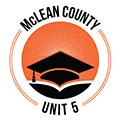The Unit 5 School Board meets tonight and this time their sexual education program is on the agenda for second reading. That means unlike the last meeting, at this meeting action will be taken on the item. The program will be taught to students in the eighth and ninth grades. The program includes information on gender identity and expression as well as sexual orientation and identity.
As one might expect this proposed program has a number of critics.
One of those critics is Desi Anderson who is running as a Republican for Illinois State Senate in District 46. Anderson is disappointed with how this item is being handled by Unit 5 and specifically Superintendent Kristen Weikle.
Anderson had this to say in a recent interview, “When I was having a conversation with Unit 5 at the board meeting, the superintendent opens up the conversation during the public announcement and says, ‘I want to make sure all disinformation stops.’ When you approach parents, and that’s your headliner, you’re not creating a dialogue.”
Unit 5 also seems to want to dismiss critics of their sexual education program when those critics mention standards for students in lower grades by saying we only teach sex education in eighth and ninth grades. Never mind that everything in the standards for grades K through 7 will likely be taught to eighth grade students, which is of course the point of the critics.
For informational purposes today we are focusing on grades 6 through 8. We can’t break it out any finer than that because this is as fine as it gets in the National Sex Education Standards (NSES) 2020 Second Edition.
We will ignore grade nine. Those standards are only broken down to 9 through 10. We wouldn’t want to talk about grade 10 because Unit 5 doesn’t want to hear about that right now since they don’t teach sex education in grade 10. Besides the standards set for eighth graders will suffice for this purpose.
Following are items in the NSES that eighth graders should be able to do regarding gender identity and expression.
- “Analyze how peers, family, and a person’s intersecting identities can influence attitudes, beliefs, and expectations about gender, gender identity, gender roles, and gender expression.”
- “Access medically accurate sources of information about gender, gender identity, and gender expression”
- “Demonstrate ways to communicate respectfully with and about people of all gender identities.”
- “Develop a plan for the school to promote dignity and respect for people of all genders, gender identities, and gender expressions in the school community.”
Here are items eighth graders should be able to do regarding sexual orientation and identity.
- “Recall the definition of sexual orientation and explain that most people have a sexual orientation.”
- “Analyze how peers, media, family, society, culture, and a person’s intersecting identities can influence attitudes, beliefs, and expectations about sexual orientation.”
- “Access credible sources of information about sexual orientation.”
- “Demonstrate ways to communicate respectfully with and about people of all sexual orientations.”
- “Develop a plan for the school to promote dignity and respect for people of all sexual orientations in the school community.”
- “Define sexual identity and explain a range of identities related to sexual orientation (e.g., heterosexual, bisexual, lesbian, gay, queer, twospirit, asexual, pansexual)”
Eight graders are expected to be able to do these items regarding sexual health
- “Define vaginal, oral, and anal sex.”
- “Describe the steps to using barrier methods correctly (e.g., external and internal condoms, dental dams)”
- “Describe pregnancy testing, the signs of pregnancy, and pregnancy options, including parenting, abortion, and adoption.”
If there is anything you see here that you find objectionable or if you support this agenda wholeheartedly, tonight’s school board meeting is at 6:30 pm at Normal West High School.







